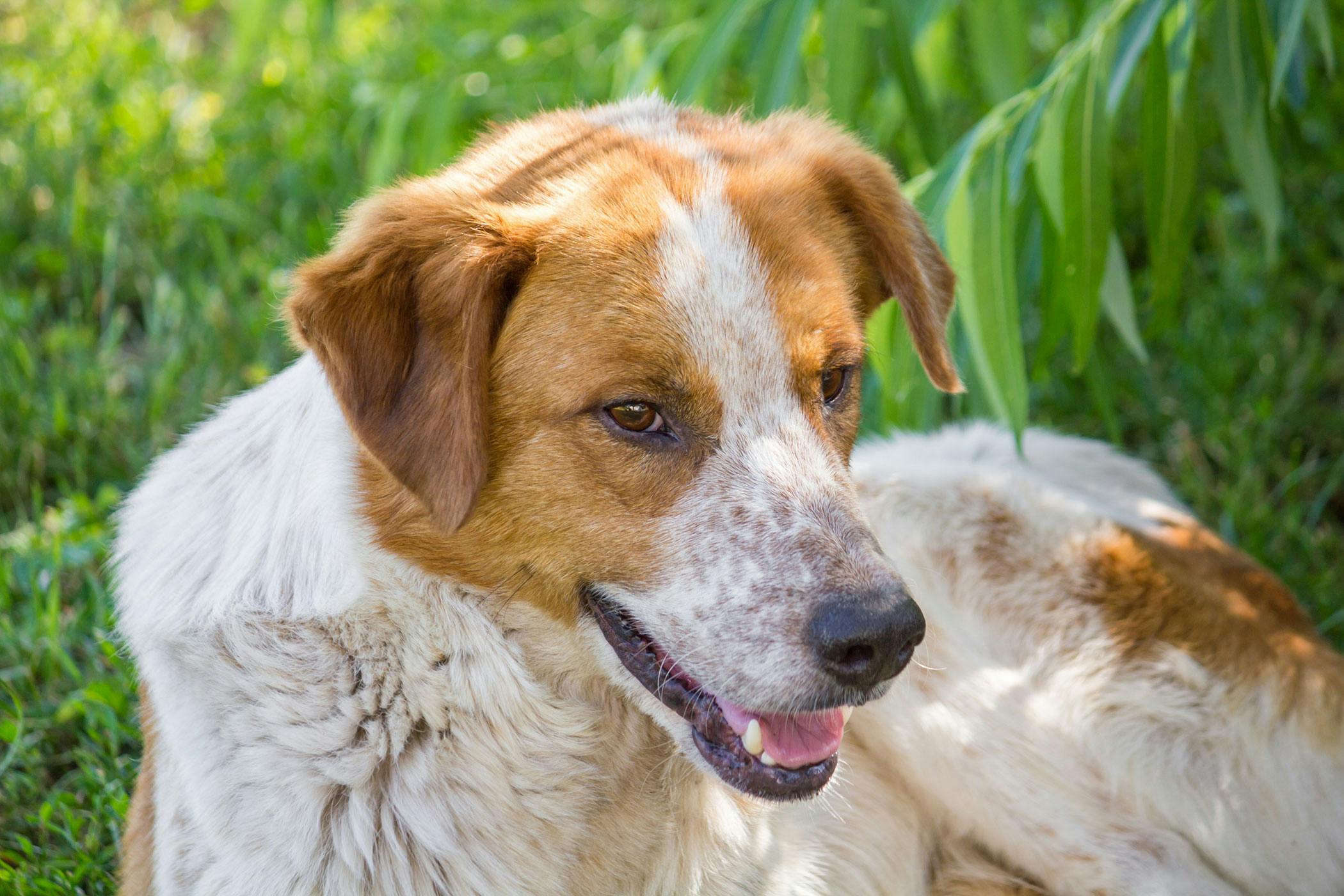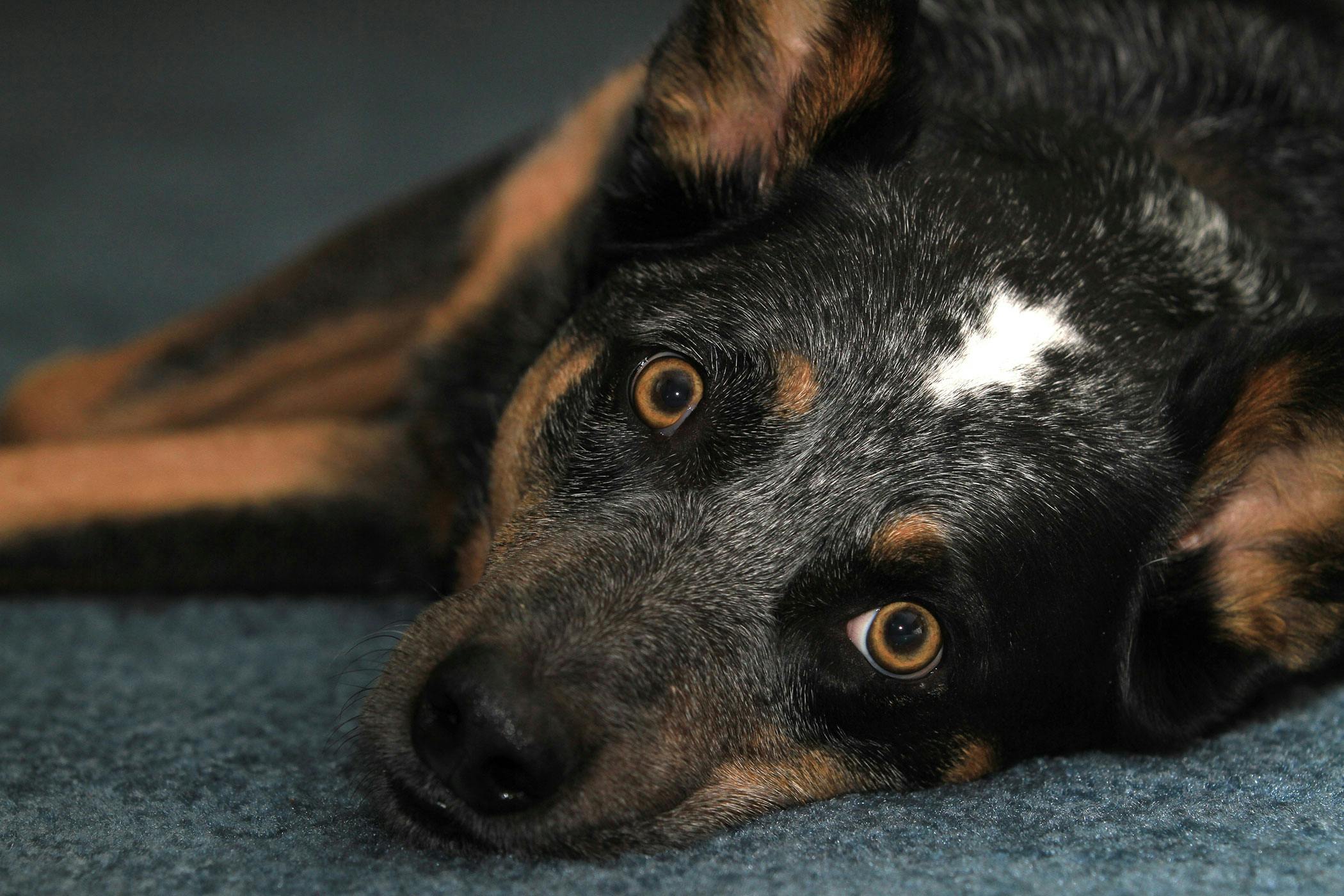
Your dog may also overheat more easily than normal and could experience personality changes. When a dog has low levels of natural thyroid hormones a veterinarian prescribes thyroxine tablets to replace the missing hormones.

This can cause many systemic changes including weight gain hair loss lethargy and susceptibility to infections most noticeably of the skin and ears.
Thyroxin appetite dog. When given the appropriate dose the side effects of oral Thyroxine are rare. Skin reactions can occur but they are quite infrequent. If given at too high of a dose your dog may experience thyrotoxicosis.
Signs of this may include increased heart rate appetite drinking urination excitability panting and nervousness. A thyroxine overdose is possible especially if you dont follow the guidelines of the vet or if the dog accidentally ingests more tablets. The symptoms of a thyroxine overdose include.
Increased thirst and appetite. Increased urination frequency. Ten of the 24 dogs showed mucinous or colored vaginal discharge decreased appetite or lethargy.
These initial signs of abortion or fetal resorption were noted during the fourth week of pregnancy and the process occurred over the next 2 weeks. Progesterone and thyroxin concentrations were measured by quantitative ELISAs validated to dog serum. When the metabolic rate slows down virtually every organ in the body is affected.
Most dogs with hypothyroidism have one or more of the following signs. Weight gain without an increase in appetite. Lethargy and lack of desire to exercise.
Cold intolerance gets cold easily dry dull hair with excessive shedding. Very thin to nearly bald hair coat. Thyroxine also called levothyroxine is a synthetic thyroid hormone drug.
When a dog has low levels of natural thyroid hormones a veterinarian prescribes thyroxine tablets to replace the missing hormones. The thyroid hormones are important to the dogs health because they control metabolism energy and the way the body uses food. Levothyroxine side effects in canines that indicate an overdose include noticeable increases in appetite thirst and urination.
Your dog may also overheat more easily than normal and could experience personality changes. Personality changes can be hard to define but you know your dog better than anyone else so trust your instincts. Thyro-Tabs Canine Synthroid Levothroid Levoxyl Unithroid Levo-T Eltroxin PMS-Levothyroxine is a thyroid hormone replacement used to treat hypothyroidism low thyroid hormone levels.
Its use in cats to treat hypothyroidism is off label or extra label. Use of the human version of this drug to treat dogs or cats is also off label. This condition is seen in large breeds of dogs and medium size dogs it is less common in small breeds it happens in mid-aged and elderly dogs between 2-10 years old.
Hypothyroidism is a condition characterized by a decreased secretion of thyroxin the contrary trouble called hyperthyroidism is far less common in which the thyroid is secreting high levels. The hyperphagia associated with hyperthyroidism may be a result of thyroid hormones acting directly on CNS appetite circuits. T3 directly stimulates food intake at the level of the hypothalamus.
In rodent models peripheral and central hypothalamic administration of T3 increases food intake 9. Dogs with jaundice may also exhibit the following symptoms. Orange color in the feces.
Mild side effects will usually subside after a few weeks or months and your dog will regain his regular energy level and appetite just as he had before developing thyroid disease. Side Effects of Hyperthyroid Medication. Symptoms of hyperthyroidism are basically opposite of hypothyroidism.
Symptoms of this ailment are completely opposite of those of hypothyroidism and include weight loss often in combination with increased appetite vomiting diarrhea rapid breathing and rapid. Mental status and physical activity are most affected. Dogs become dull depressed and lethargic.
They show a propensity to gain weight without an increase in appetite. They tend to be heat-seekers and are cold intolerant. These signs develop slowly and are often not noticed by owners or a veterinarian examining the dog for the first time.
If the vet determines that your dog is hypothyroid they will most likely put your dog on a medication containing levothyroxine sodium such as Soloxine which is a synthetic compound that mimics the effects of thyroxine helping to manage the dogs basal metabolic rate protein synthesis and increase the bodys sensitivity to catecholamines such as adrenaline. Many of the clinical signs associated with canine hypothyroidism are directly related to slowing of cellular metabolism which results in development of mental dullness lethargy exercise intolerance and weight gain without a corresponding increase in appetite. Mild to marked obesity develops in some dogs.
Boost thyroid conversion by taking certain supplements and treating certain conditions which limit the conversion process we will talk about this below The easiest and probably most effective way to increase thyroid function and lose weight is by adding pure T3 to your dose of Levothyroxine or Synthroid. Clinical features include weight loss despite a good appetite. Treatment depends on the underlying cause but options include surgery radioactive iodine antithyroid drugs and low-iodine diet.
Clinical hyperthyroidism in cats and dogs is produced from excessive secretion of the thyroid hormones T 4 and T 3 resulting in signs that reflect an increased metabolic rate. The symptoms that may be seen with an increased amount of thyroxin as youd expect reflect an animals metabolism that has gone awry. Increased appetite weight loss hyper-excitability and increased thirst and urination.
Overview of Dexamethasone for Dogs and Cats. Dexamethasone also known by the brand names of Azium Dexasone or Pet-Derm is used in the treatment of shock related to infection or the release of endotoxins in dog and cats and may be part of a treatment plan for various cancers respiratory diseases liver disorders gastrointestinal diseases skin disorders. Any disturbances in the HPA axis can result in serious medical consequences.
For example insufficient hormone production by the adrenal cortex causes Addisons disease which is characterized by muscle weakness dehydration loss of appetite ie anorexia nausea vomiting diarrhea fever abdominal pain tiredness and malaise. Hypothyroidism is an abnormality of the thyroid gland leading to a reduction in the dogs metabolic state. This can cause many systemic changes including weight gain hair loss lethargy and susceptibility to infections most noticeably of the skin and ears.
Diagnosis is made by a series of blood tests. Treatment is oral thyroid hormone replacement and is lifelong. True hypothyroidism is due to 1 of 3 reasons.
This is when the puppy is born with underactive thyroids. This however is rare. Lymphocytic or Autoimmune Thyroiditis.
This is inflammation in the thyroid due to attack by the immune system. This is the most common cause of hypothyroidism in dogs.